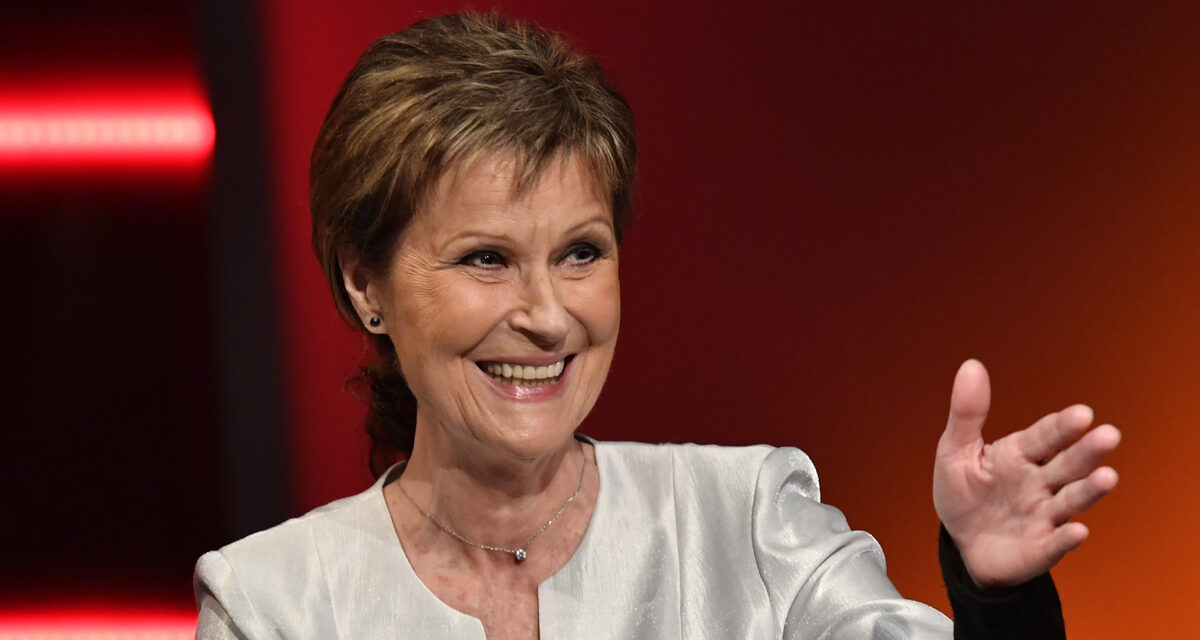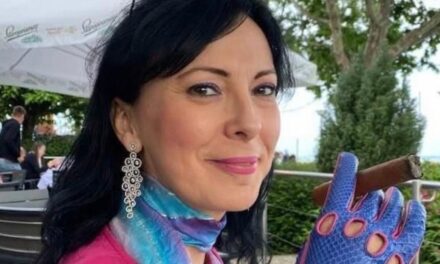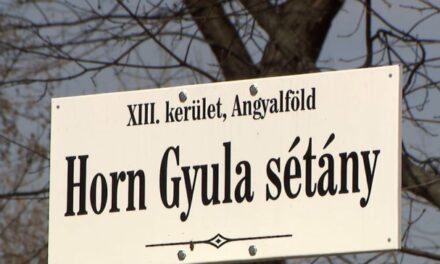As an actress, she played many roles on stage and in films. Her appearance is still that of a princess, and she radiates a demeanor that makes many people dare not approach her.
Favorite stage role?
– Magda Szabó The boy from Merán. the Mária of Laszkarisz's trilogy drama. Acting in Magda Szabó's play is a summary of a literature and history lesson. She helped a lot during the rehearsals, because Magda Szabó told fantastic stories about that era, and about Mária Laszkarisz herself.
What did it mean to be a star back then?
"Television was what really brought me popularity." Not so much the theater, although the plays were always sold out at the Madách Theater, but still, from the point of view of national recognition, I moved into everyone's apartment through television. Stardom was also different back then. I received 10-20 letters a week, very cute ones. Among others, a lady from Pécs, who has accompanied me throughout my life and every role she has ever seen on television, still sends me a postcard on my birthday.
Favorite teachers?
– One of my teachers at college was László Vámos, he loved me very much, and Zoltán Várkonyi was the other one who did not love me. He preferred curvier, revealing girls. He would have liked me to be a little more open.
After college, I won't tell you what he said, but he gave me a lifelong lesson, which then made me inhibited for a long time.
We never got around to clarifying it, because after all, he meant me good with that guide. The gist of what he was saying was that I shouldn't build walls around myself.
Did you ever reconcile with Zoltán Várkonyi?
- I became the favorite of Zoltán Várkonyi - that's how life brought it - but that only happened later. In 1972, he saw it at the Madách Theater. It was Ferenc Molnár's comedy The Swan. It is known that Várkonyi did not go to premieres in other theaters, but since his wife also played in this play, he came. He watched it and came into my dressing room to congratulate me, which made my jaw drop because he had previously declared how much he didn't like me. In my dressing room, I asked him if we were okay now. He maliciously just said yes. Before the female lead role in the Jókai adaptation of black diamonds, she tried out the role of a feature film to see if we could work together. The innocent killers c. after crime fiction, it seemed that I passed the exam for good.
Do you consider yourself a dramatic actress?
- Although I am a dramatic figure, my greatest success is the Reward Game. it was in a comedy. Péter Haumann was my partner. I really loved the Madách Theatre, its troupe, everyone without exception. But that Madách Theater no longer exists. Just as the company lives on only in heaven. In the end, I was also thrown off by Thalia's chariot. I had a hard time making the decision and quit.
Does theater move the world forward?
– I don't know if the theater is acting in the world, but we played plays at that time and at a level that lifted the audience.
I was also able to play with Mária Lázár, who would be the queen of Poland today, if history had not turned out that way. Not many people know that he is a descendant of the royal line. He called me many times, but I didn't visit him because I didn't dare. I just didn't dare. I thought it was shameless, because how could I go to him? And a kind of defense of my being a minority was there all the time, even though I was able to disguise myself well. All along, I was a Highland country girl inside who was extremely gullible and naive.
Has the Kossuth Award crowned your acting career?
– Not only my acting career, but my life, the cultural mission I undertook before and after the theater. I'm a proud person, I thought that if I don't get worthy roles at the Madách Theatre, if they don't demand me, then I won't hold on. I jumped like a kamikaze into nowhere. Even today, I consider it a gift of life that they put out a tender for the organization of the Bratislava Institute, because it was not there yet. I had no idea how to apply. I thought about what my heart's desire was, what cause I could stand up for if they trusted me. After all, I am a native of Rozsnyó in the highlands, I know what the Hungarians living in the annexed area want.
I came to the conclusion that I would straighten out the contrast between Slovaks and Hungarians through culture. I wrote it, I submitted it, I won. Creating something out of nothing is the real creation in my eyes. The organization and management of the Bratislava Hungarian Cultural Institute was a trying task. To work in such a way that I primarily serve the public good, so that I also satisfy myself at the same time.
Before that, people were appointed, they did not win the job through tendering. This is what I consider one of the main works of my life. I built it all from scratch. The empty house had to be filled in a profane way with chairs, tables, and colleagues. Then came the mission. Ever since I was a child, I always organized and operated something, because I had the ability to do so. With this cultural mission, my work became much more and thanks to it I won much more praise and recognition than in my entire acting career. I'll give you an example.
I not only raised the idea of building the Mária Valéria bridge at the institute, but also called the Slovak and Hungarian bridge engineers together. And the "order" of life is that when the bridge was inaugurated in 2000, I was not even invited or told. But no one can take away from me that I was the midwife of the bridge construction.
In short, my Kossuth award crowned not so much my acting career, but my entire career.
When and under what circumstances did you meet Prime Minister Viktor Orbán?
– Unfortunately, we lost the election in 2002. One day my phone rang and a nice female voice said the Prime Minister wanted to talk to me. My voice stopped, because at that time Medgyessy was already the prime minister, whom I had never met, I had never spoken to. My mind was racing, wondering what he could want from me. After a few soothing sentences, it turned out that Viktor Orbán would like to meet me. I breathed a sigh of relief and happily met Him.
I didn't think that the Prime Minister would remember me even after 6 years of leading the Hungarian Institute in Bratislava, and even took my work abroad into account.
We discussed the tasks ahead of us several times, and I started to organize our circle of intellectuals. I invited those who I knew loved their country and were able to create and do something for it. The journalists asked in vain if I would give them information, a list of names, since they know about our gatherings. I kept their identity a secret for twenty years, and they attended our meetings four times a year. This reminds me of László Márkus, who told an actor colleague about me not to tell anything to Sunyo, because they wouldn't pass it on anyway.
Author: DTL
Cover photo: MTVA Photo: Zsolt Zih












